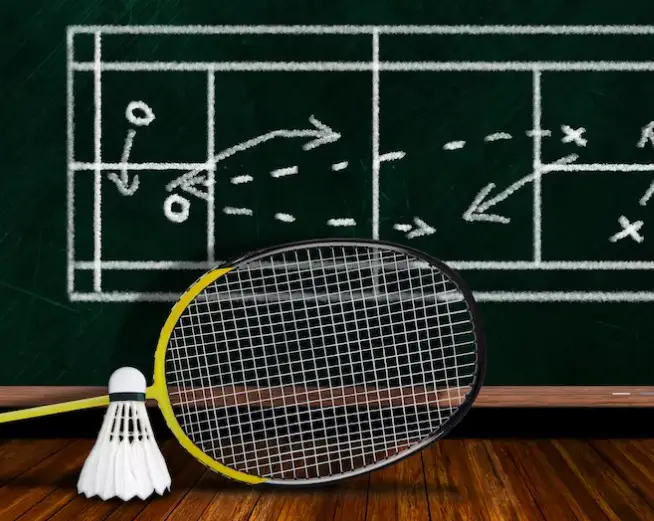Badminton is an energetic and strategic sport that requires quick reflexes and precise movements. It is a sport that requires a lot of technical knowledge and skill when playing as well as a lot of attention to detail from those officiating the game. One of the crucial roles in a badminton game is that of an umpire.
An umpire is a person who oversees a game of badminton, making sure the players adhere to the rules of the game. The umpire is also responsible for making sure the game is played fairly and that both sides have an equal opportunity to win. The umpire plays a critical role in ensuring that the game is enjoyable and fair to all parties. In this article, we will discuss the role of a badminton umpire in detail.
What are the duties of a badminton umpire?
A badminton umpire has several important duties during a match. Their primary role is to ensure that the game is played fairly and within the rules. Here are some of the key duties of a badminton umpire:
- Pre-match responsibilities: The umpire is responsible for checking the court and equipment to ensure they meet the required standards. They also coordinate with the tournament officials, players, and other officials before the match begins.
- Coin toss: The umpire conducts a coin toss to determine the choice of ends or serve, depending on the rules and format of the game.
- Match control: Throughout the match, the umpire has the authority to control the game and enforce the rules. They ensure that players adhere to the regulations, maintain discipline, and resolve any disputes or conflicts that may arise during the match.
- Scoring: The umpire keeps track of the score, announces it at appropriate times, and ensures the correct server is identified for each rally. They also confirm the validity of points scored and resolve any discrepancies.
- Faults and lets: The umpire judges and announces whether a serve or shot is a fault or a let. Faults can occur due to various reasons, such as serving or receiving out of turn, touching the net with a racket, or the shuttle landing outside the boundaries.
- Out or in: The umpire makes on-court line calls to determine whether the shuttlecock has landed within the boundaries or outside. They must have a clear view of the lines and make accurate decisions.
- Timekeeping: The umpire keeps track of the time between rallies, ensuring that both players adhere to the time limits for serving and receiving. They also manage any timeouts or interval breaks during the match.
- Safety and fair play: The umpire ensures the safety of the players by monitoring their behavior and taking necessary action against misconduct, such as unsportsmanlike conduct, verbal abuse, or dangerous play. They can issue warnings, deduct points, or even disqualify players if required.
- Player requests: The umpire addresses player requests for clarification on rules, procedures, or other issues during the match. They provide explanations and guidance as needed, maintaining fairness and transparency.
- Match conclusion: At the end of the match, the umpire verifies the final score, declares the winner, and ensures all necessary documentation is completed accurately.
What qualifications are required to become a badminton umpire?
The qualifications required to become a badminton umpire can vary depending on the level at which you want to officiate. Generally, the following qualifications and steps are involved in becoming a badminton umpire:
- Knowledge of Badminton Rules: Familiarize yourself with the rules and regulations of badminton. Study the Laws of Badminton set by the Badminton World Federation (BWF).
- Officiating Experience: Gain practical experience by officiating matches at the local level. Start with lower-level tournaments, school competitions, or club matches to develop your skills and understanding of the game.
- Umpire Training: Attend an umpire training course organized by a recognized badminton authority or association. These courses provide comprehensive training on rules, procedures, signals, and match management. Check with your national badminton federation or association for information about available courses.
- Theory and Practical Examinations: After completing the training course, you may need to pass theory and practical examinations to demonstrate your understanding of the rules and your ability to apply them in live matches.
- Certification: Upon successfully passing the examinations, you may receive a certification as a qualified badminton umpire from your national or regional badminton association.
- Practical Officiating: Start officiating matches at regional or national tournaments to gain further experience and exposure. This allows you to refine your skills, understand the nuances of higher-level competition, and build your reputation as an umpire.
- Continuing Education: Stay updated with the latest rule changes, regulations, and officiating techniques. Attend workshops, seminars, and refresher courses offered by badminton associations to enhance your knowledge and skills.
What are the basic rules of badminton?
The rules of badminton are simple and easy to follow, but what is most important is that all players adhere to them consistently. The basic rules of badminton include using the correct type of shuttlecock, having the right equipment, serving correctly, and knowing the different types of shots. A player who has a clear understanding of the rules has an advantage in gameplay and makes it easier for the umpire to oversee the match.
What are the common mistakes that umpires make in badminton?
Umpires are human and can make mistakes; however, some mistakes are more common than others. One mistake is not being in the correct position, which can make it difficult to see what is happening on the court. An inexperienced umpire may also be overwhelmed by the speed of the game and may miss calls or fouls. Additionally, an umpire may not be familiar with the rules of the game or may not enforce them, leading to unfair gameplay. A good umpire should be aware of these common mistakes and take steps to avoid them.
What is the role of an umpire in relation to players and coaches during the game?
The umpire’s role is to ensure that the game is played fairly and that all players and coaches adhere to the rules. A good umpire remains impartial and not influenced by either side during gameplay. The umpire also ensures that players are not making any controversial gestures or actions. In addition, the umpire should be approachable and open to questions from coaches and players if they have doubts or need clarification.
What is the process for becoming an official badminton umpire?
To become an official badminton umpire, one needs to attend an umpire’s course or workshop. This course or workshop offers a clear understanding of the rules and guidelines and allows individuals to gain valuable skills and knowledge. After the course, an individual will need to complete a practical test and demonstrate their knowledge and skills.
Conclusion
In conclusion, the role of an umpire in badminton is essential in ensuring that the game is played fairly and that the rules are adhered to. An effective umpire should have a thorough understanding of the game and its rules, be confident and clear in their communication, and remain unbiased throughout the match. With the right approach and know-how, an umpire can help ensure that badminton is an enjoyable and fair game for all players.







